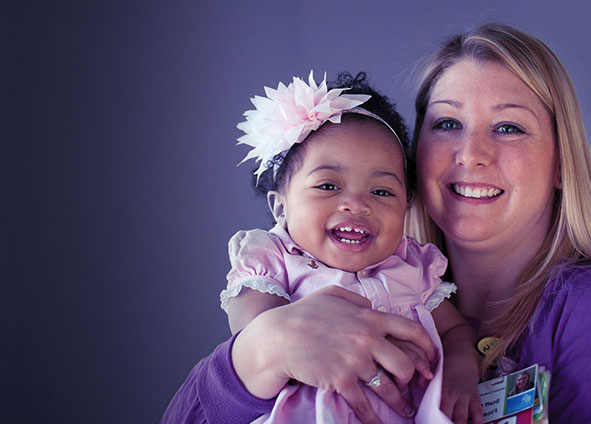Is Crying Normal?
All babies cry. And during the first 3 months of life, they cry more than at any other time:
- In the first few weeks of life, most babies cry for about 1 hour over the course of a day. Some cry more (up to 3 hours) and others less (as little as 20 minutes total).
- At about 6 weeks of age, they may cry for up to 3 hours per day.
- By 8–12 weeks, crying gradually becomes less to 1–2 hours a day.
Newborns who cry more than the averages listed above might have colic. This is when an otherwise healthy baby cries for more than 3 hours per day, more than 3 days per week for at least 3 weeks.
Colic happens to a lot of babies. It's hard to see your baby cry so much, but the good news is that babies outgrow colic.
Why Do Babies Cry?
Babies use crying to communicate that something is wrong. They may cry because they are hungry, need a diaper change, feel cold or hot, are tired, or need to be held and cuddled.
Doctors don’t know what causes colic, but they do know that it’s nothing that a parent did or didn’t do.
Sometimes, crying can be due to a problem that might need medical attention. This could be from an infection, an injury, or other health condition that causes discomfort or pain. In these cases, the crying is usually more severe or lasts longer. Babies will often have other symptoms, such as:
- a fever
- being very cranky or tired
- trouble breathing
- coughing
- vomiting
- diarrhea
- a rash
- crying even more when picked up or moved
Call your doctor if you're worried that your crying baby might be ill.
How Can I Help My Crying Baby?
Many babies will stop crying after their needs are met. So after eating or being burped, diapered, rocked or held, or after taking a nap most babies will settle down.
It can be hard to stay calm when your baby can't be consoled. But no matter how frustrated you feel, never shake your child. This can cause serious damage to a baby and even death. Shaken baby syndrome or abusive head trauma (AHT) injuries happen when a caregiver cannot get a baby to stop crying and, out of frustration or anger, shakes the baby or strikes the baby's head against a surface.
Having realistic expectations about how much your baby might cry can help you prepare — including asking for help from a partner, friend, or other caregiver if you need a break. You can also try a new way to comfort your child — like swaddling or offering a pacifier — if what you’re doing isn’t working. Singing, listening to music, or taking a walk together may help soothe your baby and help you manage your own stress.
If nothing else works, put your baby on their back in an empty crib (without loose blankets or stuffed animals), close the door, and check on the baby in 10 minutes. During that 10 minutes, do something to try to relax and calm down. Try washing your face, breathing deeply, or listening to music.
What Else Should I Know?
Taking care of a baby who has colic can be exhausting. Don't blame yourself or your baby for the constant crying — it’s is nobody's fault. Try to relax, console your little one, and remember that your baby will eventually outgrow it.
All A to Z dictionary entries are regularly reviewed by KidsHealth medical experts.


